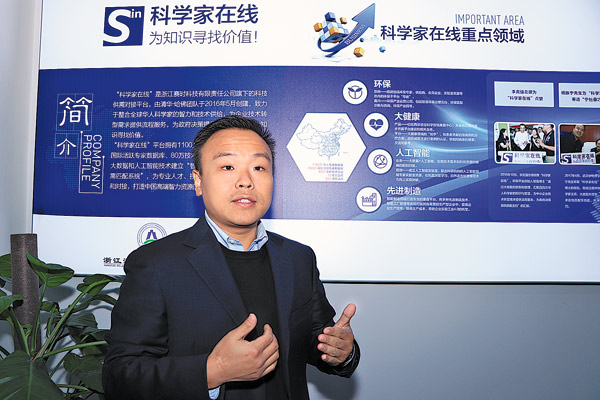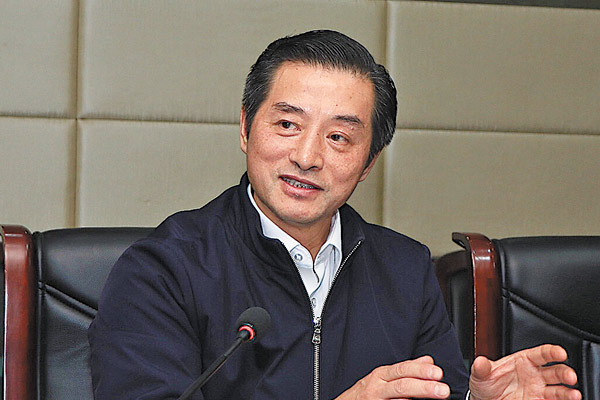ScientistIn connects experts with businesses seeking tech

 |
| Zhi Qiang, founder and CEO of ScientistIn, explains how the platform helps to connect enterprises and scientists. [Photo by Zhu Lixin/China Daily] |
ScientistIn has been bridging the gap between researchers and companies seeking new technologies in Jiaxing, a city in East China's Zhejiang province, since 2016.
"Difficulties can arise from the fact that many manufacturers don't have effective access to such science professionals, meaning they have to search very hard and take on high costs," said Zhi Qiang, who runs the online platform.
"Many scientists are conducting good research in institutions and universities, but often don't know how they can put their academic findings into practice," Zhi said.
"Only a fraction of the scientists have started their own businesses with their findings, though the country has been encouraging them to combine their academic work with business."
With big data technologies, ScientistIn is able to track every update of the registered scientists' academic work.
When a registered company announces its need for technical solutions, the platform will send the request to the most suitable scientists.
As such, the platform improves the efficiency of cooperation between scientists and companies, according to Zhi. He holds a public af air management PhD from Beijing-based Tsinghua University.
The platform has a vast online database of scientists and experts from around the world, who are mostly Chinese. More than half of the researchers are active on the ScientistIn platform, according to Zhi.
His company has also helped Zhejiang to formulate a talent map of local scientists and experts, including their locations and subjects of study.
 |
| Zhang Haige, vice-president of the Yangtze River Delta Region Institute of Tsinghua University. [Photo provided to China Daily] |
ScientistIn is one of the dozens of companies that have been incubated by the Yangtze River Delta Region Institute of Tsinghua University, based in Jiaxing, according to Zhang Haige, vice-president of the institute.
Supported by the Zhejiang provincial government and Tsinghua University, the institute was founded in 2003.
Many Chinese universities have established such institutes to better serve the local economy, but the Jiaxing-based one differs from the others partly because it doesn't rely on government financing, Zhang said.
"It has been adopting a market-oriented model. We receive funds from investors, with which we can invest in incubating startups, so that we can receive dividends," Zhang said.
Contact the writer at [email protected]



































